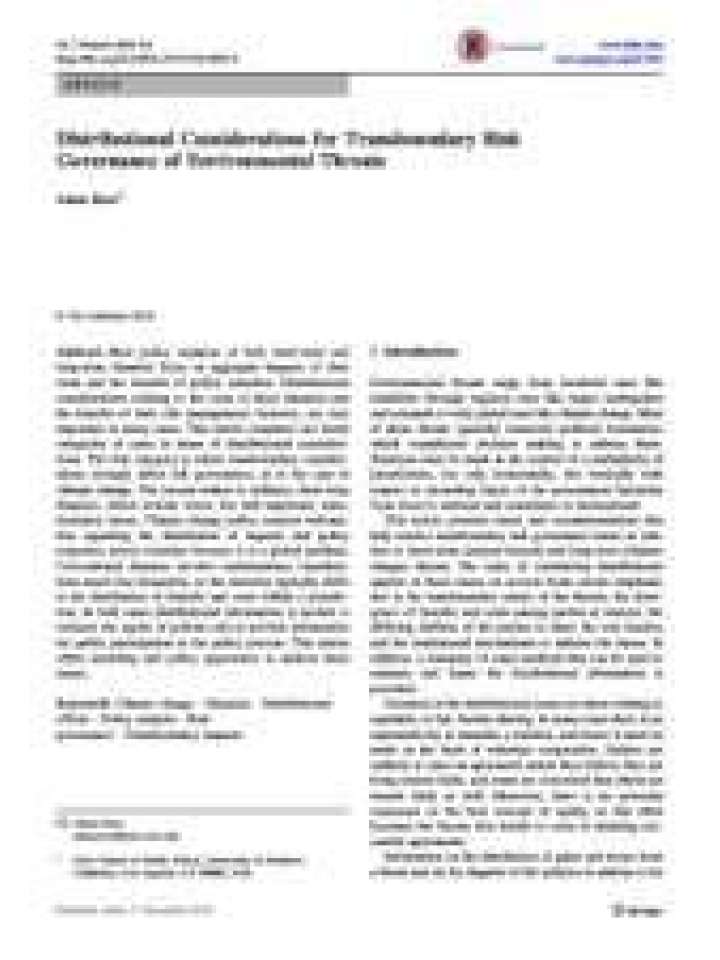Distributional considerations for transboundary risk governance of environmental threats
Most policy analyses of both short-term and long-term disasters focus on aggregate impacts of their costs and the benefits of policy remedies. Distributional considerations relating to the costs of these disasters and the benefits of their risk management, however, are very important in many cases.
This article examines two broad categories of cases in terms of distributional considerations. The first category is where transboundary considerations strongly affect risk governance, as in the case of climate change. The second relates to ordinary, short-term disasters, which include fewer, but still important, transboundary issues.
Climate change policy requires information regarding the distribution of impacts and policy responses across countries because it is a global problem. Conventional disasters involve transboundary considerations much less frequently, so the attention typically shifts to the distribution of benefits and costs within a jurisdiction. In both cases distributional information is needed to evaluate the equity of policies and to provide information for public participation in the policy process. This article offers modeling and policy approaches to address these issues.
Explore further
